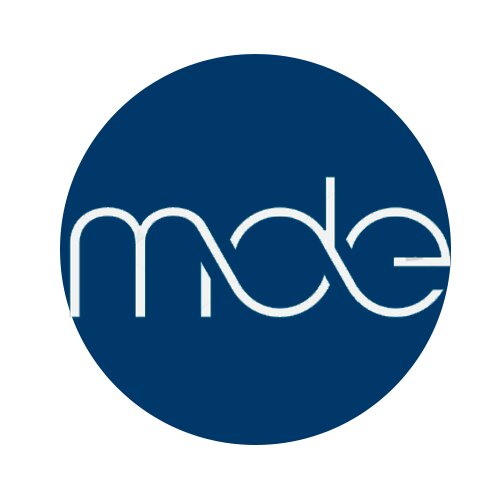Best Collaborative Law Lawyers in Adeje
Share your needs with us, get contacted by law firms.
Free. Takes 2 min.
Free Guide to Hiring a Family Lawyer
List of the best lawyers in Adeje, Spain
About Collaborative Law in Adeje, Spain
Collaborative Law is an alternative dispute resolution method that prioritizes cooperation rather than confrontation. In Adeje, Spain, as in the wider Canary Islands and across Spain, collaborative law is becoming an increasingly popular way for individuals, families, and even businesses to resolve disputes, especially in areas like family law and civil matters. The process typically involves both parties and their lawyers working together to reach a mutually agreeable outcome, without the need for court intervention. This non-adversarial approach focuses on open communication, transparency, and long-term solutions that respect the interests of everyone involved.
Why You May Need a Lawyer
There are a variety of situations in which you may benefit from the guidance of a collaborative law lawyer in Adeje:
- Family disputes: Collaborative law is commonly used for issues such as divorce, child custody arrangements, alimony, and division of property, aiming for amicable resolutions that prioritize family harmony.
- Business disagreements: Business partners or shareholders may use collaborative law to settle internal disputes without damaging professional relationships.
- Community or neighbor conflicts: Problems between neighbors or within condominiums can often be settled efficiently using collaborative law methods.
- Estate and inheritance matters: When families face disagreements over inheritance or estate division, collaborative law can prevent lengthy and costly court cases.
- Preventing legal escalation: Engaging a collaborative law expert early can often stop a disagreement from developing into a full legal battle, saving time, money, and emotional strain.
Local Laws Overview
In Spain, and by extension Adeje, collaborative law is not codified in the same way as traditional litigation, but it is recognized as a legitimate dispute resolution method. Participants agree in writing to avoid court proceedings and instead work together with the assistance of trained collaborative lawyers. The Spanish Civil Code and other legislation such as the Ley de Enjuiciamiento Civil (Civil Procedure Act) offer a legal framework that supports settlements and non-contentious agreements reached through collaborative law.
Lawyers who practice collaborative law in Adeje must also adhere to ethical standards set by the local Colegio de Abogados (Bar Association) and must be properly trained in collaborative techniques, including mediation and negotiation. Any agreements reached can be formalized legally and, if necessary, submitted to the courts for approval, ensuring they are enforceable under Spanish law.
Frequently Asked Questions
What is the main difference between collaborative law and traditional litigation?
Collaborative law is a cooperative process focused on reaching an amicable agreement outside of court, while traditional litigation involves a judge making decisions after adversarial proceedings.
Is collaborative law suited only for family matters?
No, although it is popular in family law, collaborative law can also be effectively used for business, inheritance, and community disputes in Adeje.
Are the agreements reached through collaborative law legally binding in Spain?
Yes, agreements reached through collaborative law, once signed and properly formalized, are legally binding and can be enforced by the courts.
Do both parties need to have a collaborative law-trained lawyer?
Yes, both parties should have independent lawyers who are specifically trained in the collaborative process to ensure fairness and proper legal guidance.
What happens if the collaborative process fails?
If the collaborative process breaks down, the lawyers involved usually must withdraw, and the parties may seek new legal representation to proceed in court.
Can children’s interests be represented in a collaborative family law process?
Yes, the process encourages solutions that prioritize the welfare and best interests of children, sometimes involving neutral child specialists or mediators.
How long does the collaborative law process usually take?
The timeframe varies, but generally, collaborative law leads to quicker resolutions compared to court cases, often resulting in an agreement within a few sessions.
Is the collaborative law process confidential?
Yes, all discussions and documentation exchanged during collaborative law sessions are confidential and cannot be used in subsequent litigation if the process fails.
What happens if there is a history of domestic violence?
Cases involving domestic violence or significant power imbalances may not be suitable for collaborative law. In such situations, courts or other protective measures may be necessary.
How are collaborative law lawyers compensated?
Lawyers generally charge by the hour or a set fee for collaborative law services. The overall cost is often lower than traditional litigation thanks to the process’s efficiency.
Additional Resources
If you are seeking more information or support related to collaborative law in Adeje, these resources may be helpful:
- Colegio de Abogados de Santa Cruz de Tenerife: The local Bar Association provides referrals, training information, and guidance on finding qualified collaborative law lawyers.
- Alternative Dispute Resolution Centers: Several centers in Tenerife specialize in mediation, negotiation, and collaborative approaches, which may complement legal advice.
- Family Court Services: Local courts offer resources and information on making collaborative agreements legally enforceable.
- Municipal Legal Aid Offices: The Adeje Town Hall may provide advice or referrals to collaborative law professionals, especially for residents in need.
- Non-profit organizations and foundations: Groups focused on conflict resolution and family support often organize workshops and offer guidance about collaborative law.
Next Steps
If you believe collaborative law could help you resolve a dispute in Adeje:
- Consult a local lawyer: Seek out a lawyer in Adeje who is experienced and trained in collaborative law.
- Ask about collaborative options: During your consultation, specifically mention your interest in collaborative law and discuss its suitability for your situation.
- Prepare documentation: Gather all relevant information, agreements, and documents before your meeting to help your lawyer assess your case efficiently.
- Involve all parties: Encourage open, honest participation from everyone involved to ensure the collaborative process runs smoothly.
- Follow legal advice: Your lawyer will help guide you through the process, draft agreements, and, if necessary, formalize any arrangement reached to ensure it is recognized by the courts.
Collaborative law can be a constructive, less stressful alternative for resolving disputes in Adeje. Reaching out to a qualified legal expert is the first step toward a positive outcome.
Lawzana helps you find the best lawyers and law firms in Adeje through a curated and pre-screened list of qualified legal professionals. Our platform offers rankings and detailed profiles of attorneys and law firms, allowing you to compare based on practice areas, including Collaborative Law, experience, and client feedback.
Each profile includes a description of the firm's areas of practice, client reviews, team members and partners, year of establishment, spoken languages, office locations, contact information, social media presence, and any published articles or resources. Most firms on our platform speak English and are experienced in both local and international legal matters.
Get a quote from top-rated law firms in Adeje, Spain — quickly, securely, and without unnecessary hassle.
Disclaimer:
The information provided on this page is for general informational purposes only and does not constitute legal advice. While we strive to ensure the accuracy and relevance of the content, legal information may change over time, and interpretations of the law can vary. You should always consult with a qualified legal professional for advice specific to your situation.
We disclaim all liability for actions taken or not taken based on the content of this page. If you believe any information is incorrect or outdated, please contact us, and we will review and update it where appropriate.









